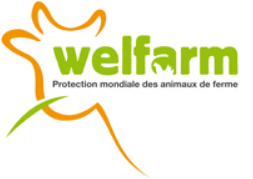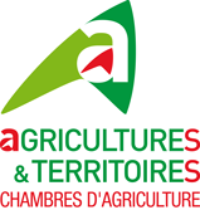Document type: news from Welfarm
Author: Welfarm
Preview: Plans have been proposed for several vast Atlantic salmon farms in France and are currently under consideration. These land-based, closed-circuit aquaculture operations raise numerous concerns over animal welfare and environmental impacts.
Could France, which currently produces around 400 tonnes of salmon a year, become a major player in this market? A number of companies, who are keen to develop closed-circuit aquaculture (RAS) in France, certainly hope so. [...]What is the integral RAS?
RAS stands for "Recirculating Aquaculture Systems". In French, the terms 'recirculating systems' and 'closed (as opposed to open) circuits', are also used. In a "recirculation" system, varying amounts of the water are recycled on the farm: water that would otherwise leave the circuit is recovered, subjected to various purification processes, and then returned to the farm's water circulation system.
On many farms, in France and elsewhere, the early phases of the fish rearing cycle (hatchery and/or pre-fattening) are carried out in a closed RAS system, while the remainder of the farming cycle (fattening) is carried out in open system and/or in marine or lake cages. This type of hybrid production method has been quite common for several decades. [The term "full" RAS refers to a system in which the entire rearing cycle, from hatching to slaughter weight, is carried out in RAS. Depending on the case and the species, the cycle may operate entirely in fresh water (e.g. trout), entirely in sea water (e.g. turbot), or start out in fresh water and end in sea water (e.g. salmon). [...]While full RAS farming offers some advantages in terms of animal welfare, it also has a number of disadvantages.
A few advantages...
- Biosecurity. This fish farming system offers a high level of biosecurity, as the virtual absence of contact with the outside environment limits the risk of infection by pathogens and parasites from the outside environment.
- Water quality control. RAS farms are equipped with numerous water purification systems to enable water recycling. This means they are less vulnerable to hazards such as water pollution, which can affect water quality.
... many drawbacks
- High stocking densities. The high production costs of full RAS mean that high stocking densities are necessary to make farming profitable. For this reason, the stocking densities generally used in RAS (ranging from 40-50 kg/m3 to over 100 kg/m3) are considerably higher than those used in the sea cages found in conventional farming. [...]
- Mass mortality episodes. RAS farming systems carry the risk of mass mortality episodes as fish survival depends on the proper functioning of sanitation and water filtration systems. In the event of a power cut or if water treatment systems fail, the farm's entire stock of fish may succumb to the rapidly deteriorating water quality. [...]
- Water quality management. Although water quality is tightly controlled in RAS, some of the physico-chemical parameters appear more difficult to maintain at optimum levels in this type of farming. This is particularly true for water-related parameters that can only be improved by water renewal, nitrate levels for example.
- Antibiotic management. In the event of bacterial disease entering a RAS farm, the use of antibiotics could prove risky: water quality in these systems is closely dependent on the proper functioning of biofilters (which house colonies of bacteria). Antibiotics could upset the bacterial balance of these filters, putting the survival of the fish at risk.
- Space. The total volume of water available (regardless of density) is smaller, and the depth of the water column is reduced compared with sea cages.
- Continuous light. RAS farms often tend to keep fish in continuously-lit environments, or artificially increase daytime lengths to stimulate feed intake in particular. Although the consequences of this practice for salmon are still poorly understood, there is cause to suspect that this has a variety of negative effects on their development. [...]






